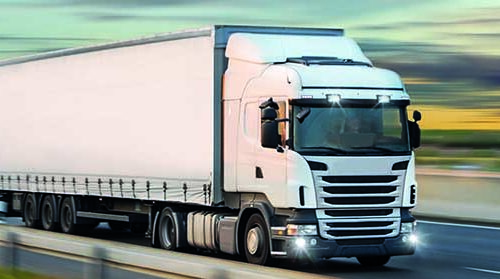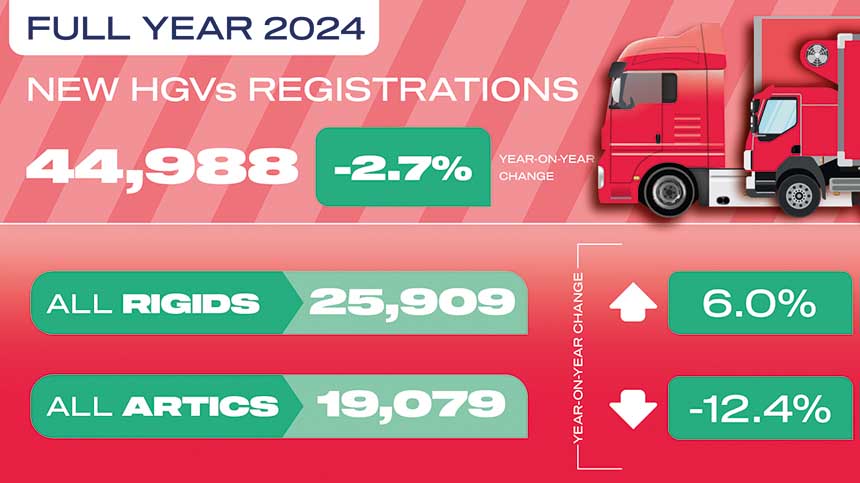New HGV market goes into reverse in 2024 – SMMT

The UK’s new HGV market fell for the first time in three years in 2024, according to figures from the Society of Motor Manufacturers and Traders (SMMT).
It found that registrations were down 3.3% in the fourth quarter and by 2.7% to 44,988 sales across the year.
The annual HGV decline was driven by falling demand for articulated trucks, down 12.4% to 19,079 units, while deliveries of new rigid trucks were up six per cent to 25,909 units.
Meanwhile, sales of zero emission trucks decreased by 7.3% to just 217 units, representing a 0.5% market share.
Manufacturers have invested significantly to deliver a wide choice of ZEV models but the higher cost of production means higher acquisition costs for operators – in addition to expensive depot infrastructure upgrades – posing significant barriers to uptake. Costs will rise again in six weeks, when the Plug-in Truck Grant comes to an end.
The SMMT is now calling for an updated replacement that offers compelling incentives for all new zero emission HGV models, along with support for depot upgrades. Such support will be available to a limited number of fleets taking part in the Zero Emission HGV and Infrastructure Demonstrator programme this year.

Mike Hawes, SMMT chief executive, said:
“A slight decline in truck fleet renewal reflects a sector that is normalising after strong post-Covid growth. With most of the market nearly one full investment cycle away from the 2035 end of sale, however, urgent action is needed to address stagnant zero emission uptake. Manufacturers are delivering the products – now operators must be convinced to invest. Meaningful fiscal support and infrastructure rollout is essential, therefore, so that fleet transition is a compelling commercial proposition.”
Meanwhile, the SMMT has also reported that the UK’s new bus, coach and minibus market recorded a second consecutive year of growth and the best annual performance since 2008. It reported a 70.1% increase in registrations to 8,390 units.








